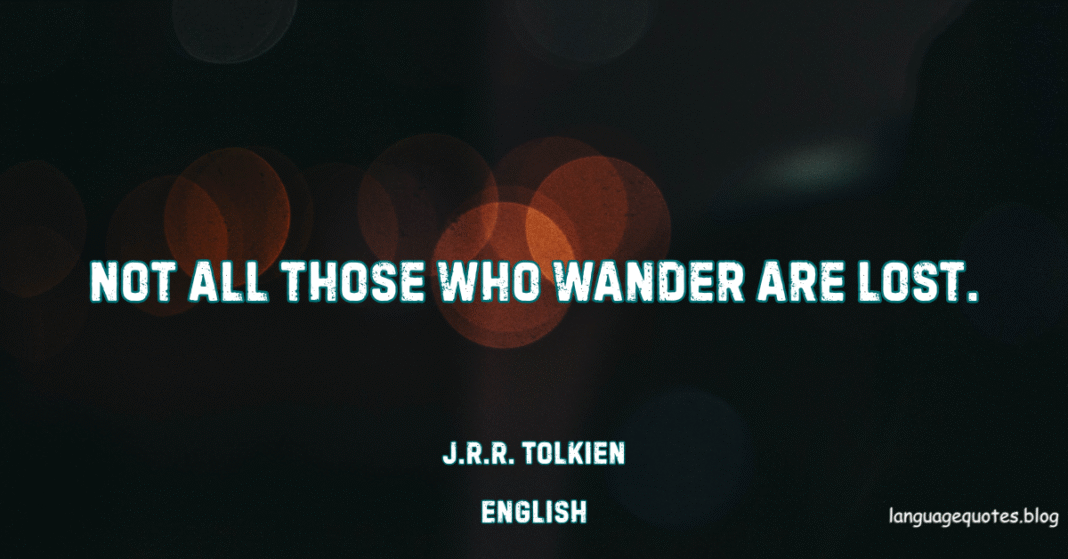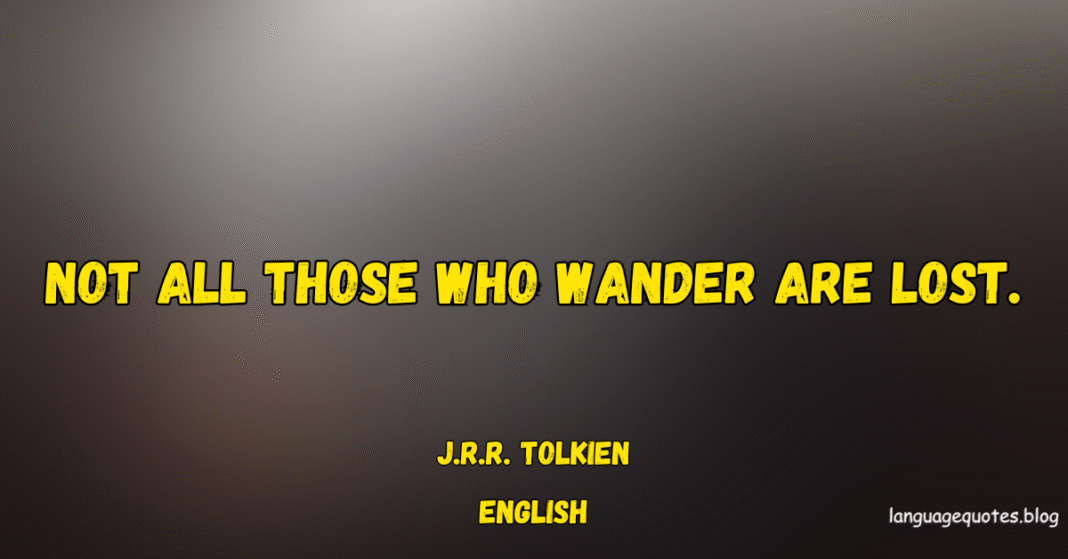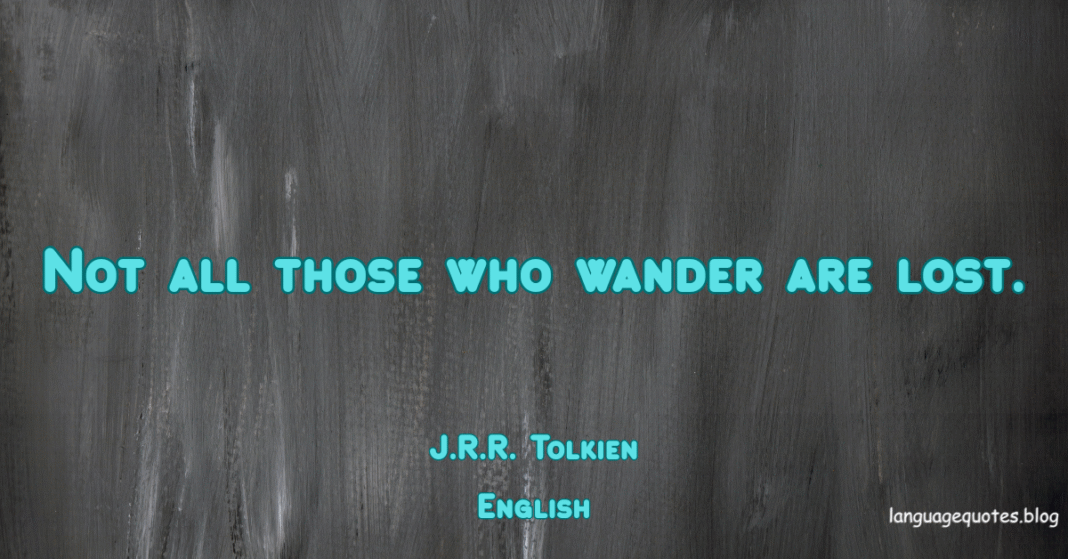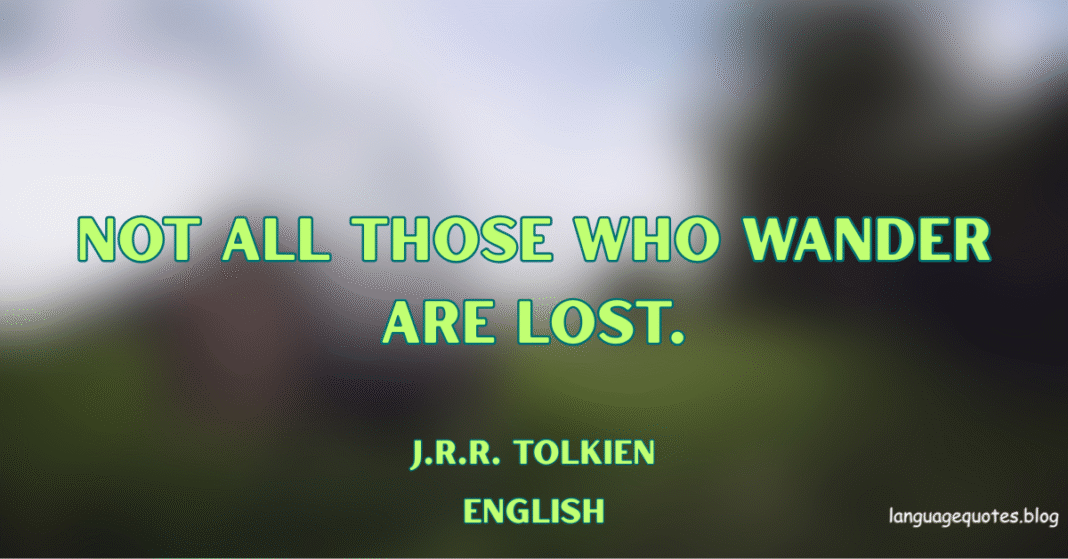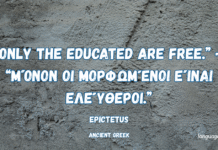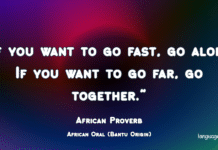“Not all those who wander are lost.”
— J.R.R. Tolkien
💬 2-Line Comment:
Tolkien speaks to the soul of every seeker. Wandering isn’t about losing your way—it’s about discovering who you are beyond the map.
🌍 Introduction: A Journey Without a Map Isn’t Always Misguided
Few literary quotes have resonated across generations like J.R.R. Tolkien’s famous line: “Not all those who wander are lost.” At first glance, it appears to be a simple reassurance—but beneath its lyrical rhythm lies a deep philosophical and spiritual truth about the nature of exploration, purpose, and self-discovery.
The quote appears in Tolkien’s epic fantasy The Fellowship of the Ring as part of a poem describing Aragorn, the hidden king. Yet it transcends its fictional roots to become a mantra for dreamers, seekers, rebels, and wanderers in the real world. It speaks to anyone whose path may appear unconventional or uncertain, yet is deeply intentional.
🧭 Meaning: Redefining the Idea of ‘Lost’
In a world that often values direction, certainty, and predictability, people who wander—those who change paths, take detours, or explore without a fixed destination—are frequently misunderstood. Society tends to label them as lost, indecisive, or unproductive. Tolkien, however, flips that assumption with quiet brilliance. He reminds us that wandering can be a form of growth, purpose, and transformation.
To wander is not necessarily to drift aimlessly. In fact, many who appear to be wandering are in the process of discovering who they are, where they belong, and what matters most. Their journey may not follow a traditional map, but it often leads to a richer, deeper sense of meaning.
🧠 Philosophical Layers: Purpose in the Unknown
Tolkien’s line echoes deeper philosophical concepts that date back to ancient thought. The Socratic method itself is a kind of intellectual wandering—asking questions, challenging assumptions, refusing to settle for easy answers. Similarly, existentialist thinkers like Søren Kierkegaard and Jean-Paul Sartre have emphasized that the journey to authentic selfhood often involves discomfort, uncertainty, and yes—wandering.
So, when Tolkien writes that not all wanderers are lost, he’s validating an entire way of living: one where growth comes through experience, not just achievement; where meaning arises through exploration, not arrival.
In today’s fast-paced world, where everyone is expected to “have it all figured out” by a certain age, this quote offers reassurance to those who are still searching, evolving, or trying new paths. It whispers, “You’re not behind—you’re becoming.”
🏕 Life Applications: From Travel to Inner Journeys
The beauty of this quote lies in its flexibility. It can be read literally and metaphorically. Literally, it resonates with:
-
Backpackers and travelers who explore new places for experience rather than itinerary.
-
Nomads and digital workers who choose freedom over stability.
-
Artists, writers, and creators who thrive outside the boundaries of traditional careers.
But metaphorically, its impact is even more powerful. It speaks to:
-
People changing careers later in life
-
Students taking time to discover their passions
-
Survivors of loss rebuilding their lives
-
Anyone on a spiritual or emotional path that doesn’t conform to social expectations
In all these cases, wandering is not a sign of failure—it’s an active, courageous search for truth, authenticity, and alignment.
🧘 Emotional Insight: Permission to Be In Process
There’s emotional relief in these words. “Not all those who wander are lost” gives us permission to be in process, to not have all the answers, and to take our time. It offers compassion to the parts of us that are still unsure, still searching.
Too often, we measure progress by external markers: jobs, degrees, status, followers. But Tolkien reminds us that some of the most profound growth happens invisibly, when we’re questioning, exploring, or even feeling “off track.”
This quote teaches emotional intelligence by encouraging patience, empathy, and a deeper understanding of other people’s journeys. It tells us to stop rushing others to define themselves and instead honor the courage it takes to wander.
📝 Literary Context: Tolkien’s Poetic Genius
This line is taken from a poem in The Fellowship of the Ring that foreshadows the return of Aragorn, the rightful heir to the throne of Gondor. Here’s the full stanza for context:
All that is gold does not glitter,
Not all those who wander are lost;
The old that is strong does not wither,
Deep roots are not reached by the frost.
These lines describe hidden strength, quiet resilience, and the undervalued beauty of subtle power. Aragorn, who appears as a ranger with no title or prestige, turns out to be a noble leader—proving that those who wander may actually hold the greatest wisdom.
🛤 In Modern Times: Reclaiming the Word ‘Wanderer’
Today, this quote continues to resonate with:
-
Young people exploring careers or identities
-
Spiritual seekers rejecting institutional norms
-
Mental health advocates breaking away from toxic productivity
-
Creative souls taking time to find their voice
In an era of over-planning and instant gratification, “Not all those who wander are lost” is a sacred reminder that slow, uncertain, and winding paths can lead to the most meaningful destinations.
🧳 Conclusion: Wander, and Let It Be Enough
J.R.R. Tolkien’s timeless line reminds us that life is not a linear race but a mysterious, evolving adventure. Those who take the time to explore—who veer off the beaten path, question norms, or chase a dream that doesn’t fit the mold—are not misguided. They are brave.
So if you’re wandering, searching, stumbling, or simply refusing to settle, know this: You are not lost—you are becoming. And perhaps, that’s exactly where you’re meant to be.


